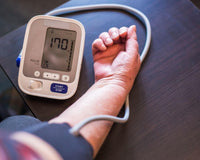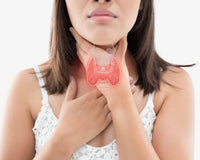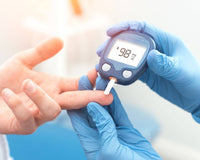Gastroesophageal reflux disease, often referred to by the acronym GERD, is a chronic digestive condition in which stomach acid irritates the lining of the esophagus. GERD can be diagnosed when acid reflux occurs more than twice a week or results in inflammation in the esophagus. Treatment for GERD usually involves medications such as omeprazole and a diet high in fiber and low in sugar, fat, and spice. In this article we answer the questions what is GERD and how long does GERD take to heal?
What Is GERD?
Gastroesophageal reflux disease, often referred to by the acronym GERD, is a digestive disease in which stomach acid irritates the lining of the esophagus. GERD is a form of chronic acid reflux that occurs when stomach acid flows back into the esophagus. It is diagnosed when acid reflux occurs more than twice a week or results in inflammation in the esophagus. It is estimated that about 20% of people in the United States have been diagnosed with GERD.
GERD is commonly confused with acid reflux and heartburn. However, GERD is a more serious, chronic condition often caused by eating habits or anatomy. Acid reflux causes mild discomfort that goes away shortly, whereas symptoms of GERD are often persistent and can inhibit eating and drinking for long periods of time.
How Is GERD Different Than Acid Reflux?
When people first hear of GERD, it is common for them to think it is the same as acid reflux. However, GERD differentiates itself from acid reflux by its symptoms and persistence. While acid reflux is a short-term condition that may occur only occasionally, GERD can occur daily and persist for years.
How Is GERD Different Than Heartburn?
Heartburn is characterized by a burning pain in the chest, usually just behind the breastbone. Unlike GERD, heartburn can be triggered by activities other than eating, including aspirin and ibuprofen. People who experience heartburn more than twice a week may have GERD.
GERD Treatment
GERD is most effectively treated through a combination of lifestyle changes, diet modification, and prescription medication. Initial treatment for GERD often involves medications as well as a diet low in sugar and fat. Your doctor may recommend multiple types of over-the-counter medications such as antacids and H-2 blockers.
GERD Diet
Diet plays a major role in controlling symptoms of GERD and acid reflux. A change in diet is usually the first step in treating GERD. Those on a diet for GERD are usually instructed to avoid foods high in fat, spice, or salt such as fried food, pizza, french fries, chili powder, potato chips, and cheese. Foods high in fat, salt, and spices take longer to digest and thus require the stomach to produce more acid to process them. In addition, foods high in fat and sugar have a relaxing effect on the lower esophageal sphincter. A relaxed lower esophageal sphincter is more likely to let acid backwash in and cause GERD and heartburn.
Foods To Eat For GERD
There are plenty of foods that can help reduce stomach acid and alleviate the symptoms of GERD. Foods low in fat and sugar and high in water content can help heal GERD. The following food groups and foods have been found to improve uncomfortable side effects of GERD.
High-Fiber Foods
Foods high in fiber help you feel full and satisfied. When consumed, soluble fiber forms into a gel that can slow digestion and the emptying of the stomach. Healthy fiber can be easily obtained by eating whole grains such as oatmeal and rice, root vegetables like sweet potatoes, and green vegetables such as asparagus and broccoli.
Alkaline Foods
Alkaline foods are those that fall on the higher end of the ph scale. Common alkaline foods include bananas, melons, cauliflower, and nuts. These foods have low acid content and can work to dissolve and reduce stomach acid.
GERD Medications
Common prescription medications used to treat chronic acid reflux include omeprazole, esomeprazole, rabeprazole, and dexlansoprazole. These medications belong to a classification of drugs known as proton pump inhibitors. Proton pump inhibitors work to inhibit the proton pump essential in the final step of acid production. By preventing the proton pump from working, these medications decrease acid production and help prevent GERD and acid reflux.
How Long Does GERD Take To Heal?
GERD tends to be a chronic disease that takes longer to heal. Treatment for GERD can vary based on severity of disease and lifestyle. In most cases, GERD takes anywhere from one week to one month to heal. Severe GERD may require as many as three months of continuous treatment. During this period, treatment may be modified or changed depending on the response of the esophagus, stomach, and overall body.
Some cases of GERD require maintenance treatment. People who require maintenance treatment may take antacid medication or H-2 blockers on a schedule, rather than only occasionally. Consistent use of antacid or H-2 blocker medication can make day-to-day activities more comfortable for people with chronic acid reflux.
Does Exercise Help GERD?
In general, exercise improves digestion and helps with acid reflux and GERD. However, it is important for people who experience GERD to choose the right exercises for their workouts. Certain exercises can improve digestion and GERD, while others can actually trigger acid reflux. Activities like walking, jogging, stationary bike riding, and swimming are also great choices for people with GERD. More intense exercises like spring, gymnastics, and weight lifting should be avoided, as they can place intense stress on the abdominal muscles and stomach.
Most people exercise to maintain and improve their health. GERD should never prevent you from exercising or taking other measures to improve your well being. The following tips may be helpful for those who experience GERD and still desire to exercise consistently:
- Don’t exercise within two hours of eating
- Stay hydrated during and after exercising
- Avoid foods that trigger acid reflux
- Eat a healthy, high-fiber meal before exercising
What Is Gerd: Summary
Gastroesophageal reflux disease, often referred to by the acronym GERD, is a chronic digestive disease in which stomach acid backwashes into the esophagus. GERD can irritate the lining of the esophagus and lead to heartburn.
GERD can often take much longer to heal than acid reflux or heartburn. A diet full of high-fiber and high-alkaline foods can help alleviate GERD. Light exercises like walking, jogging, and stationary bike riding can help improve symptoms of GERD.








